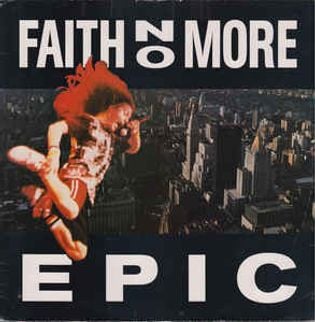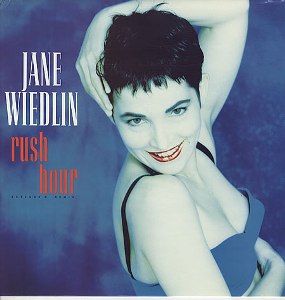 Pat Benatar’s “Hit Me With Your Best Shot” is more than a defiant rock anthem—it’s a cultural landmark that helped define an era of women stepping boldly into the arena of hard-edged music without losing their identity, power, or vulnerability. Released in 1980 as the second single from her sophomore album Crimes of Passion, the song marked a critical point in Benatar’s career, catapulting her into the upper echelon of rock royalty and establishing her as a dominant force in a male-dominated genre. With its pounding beat, scorching guitar riff, and iconic vocal delivery, “Hit Me With Your Best Shot” became a rallying cry not only for women fed up with being underestimated, but for anyone who had ever dared someone—or something—to try and knock them down, only to rise back stronger.
Pat Benatar’s “Hit Me With Your Best Shot” is more than a defiant rock anthem—it’s a cultural landmark that helped define an era of women stepping boldly into the arena of hard-edged music without losing their identity, power, or vulnerability. Released in 1980 as the second single from her sophomore album Crimes of Passion, the song marked a critical point in Benatar’s career, catapulting her into the upper echelon of rock royalty and establishing her as a dominant force in a male-dominated genre. With its pounding beat, scorching guitar riff, and iconic vocal delivery, “Hit Me With Your Best Shot” became a rallying cry not only for women fed up with being underestimated, but for anyone who had ever dared someone—or something—to try and knock them down, only to rise back stronger.
The song was written by Eddie Schwartz, a Canadian singer-songwriter whose original version lacked the punch that would eventually electrify the airwaves. When Benatar got her hands on it, alongside her band led by future husband and guitarist Neil Giraldo, it was transformed into something unforgettable. The final track combined driving rock rhythm, muscular guitars, and a dynamic vocal performance that gave it both grit and flair. The production was slick, but not soulless. The energy was urgent, but controlled. From its first ringing notes to its final fade-out, “Hit Me With Your Best Shot” declared itself as a statement of strength wrapped in melodic precision.
Benatar was no stranger to breaking barriers. With classical training and early roots in musical theater, she brought a level of vocal dexterity and control that most of her rock contemporaries—male or female—couldn’t match. Her ability to switch from operatic power to snarling attitude gave her music a dual edge that defined her brand. On “Hit Me With Your Best Shot,” she channels that versatility into a performance that is both playful and forceful. She sounds like a woman daring the world to try and defeat her—and enjoying the game along the way.
Lyrically, the song is a challenge. It’s not defensive, but offensive—a declaration of resilience and a preemptive strike against pain. “You’re a real tough cookie with a long history of breaking little hearts like the one in me,” Benatar sings, setting the scene with both sarcasm and swagger. It’s flirtation weaponized, strength cloaked in cool. The verses set up the scenario—a woman who has been hurt before, who knows the game, and who’s not going to back down. Then the chorus lands with its iconic line: “Hit me with your best shot—fire away.” It’s one of the most enduring refrains in rock history because it captures something timeless: the willingness to face adversity head-on, to absorb a blow and keep standing, to take the worst someone has to offer and answer with confidence.
Musically, the song is tightly constructed and instantly accessible. Clocking in at just under three minutes, it wastes no time getting to the point. The opening guitar riff, crafted by Giraldo, is clean and crunchy, a perfect distillation of arena rock’s bright, aggressive tone. The rhythm section, anchored by bassist Roger Capps and drummer Myron Grombacher, lays down a driving groove that keeps the song moving without overcomplicating the arrangement. It’s a masterclass in economy—every part serves the whole, and nothing is extraneous.
One of the things that makes “Hit Me With Your Best Shot” so enduring is its ambiguity. Is it about romantic heartbreak? Feminist empowerment? Personal endurance? The answer is yes—to all of the above. The song is open to interpretation in a way that allows listeners to project their own experiences onto it. For some, it’s a breakup song, flipping the script on emotional pain. For others, it’s an anthem of strength in the face of any challenge—be it professional, emotional, or societal. It’s been used in sports arenas, in military contexts, in protests, in films, and in karaoke bars around the world. Its universality lies in its simplicity: it’s about standing tall and demanding that the world bring it on.
When Crimes of Passion was released, it marked a new chapter for Benatar. Her debut album In the Heat of the Night had already introduced her to the world with hits like “Heartbreaker,” but Crimes of Passion showed depth, range, and maturity. Produced by Keith Olsen, the album paired hard rock power with pop accessibility. Alongside “Hit Me With Your Best Shot,” the album featured emotionally rich tracks like “Treat Me Right” and a blistering cover of John Mellencamp’s “I Need a Lover.” But it was “Hit Me” that became the breakout single, peaking at No. 9 on the Billboard Hot 100 and becoming her first Top 10 hit. It solidified her commercial success and helped the album go platinum.
The success of the song—and of Benatar herself—was revolutionary at the time. Female rockers had existed before, from Janis Joplin to Suzi Quatro to Debbie Harry. But Benatar brought something different: a blend of technical vocal excellence, fierce attitude, and mainstream success that broke new ground. She wasn’t a novelty or a token woman in rock. She was a powerhouse. Her style—leather pants, headbands, smoky eyes—became iconic, influencing the look and feel of female empowerment in the ‘80s. But her success wasn’t just about fashion or image. It was about talent and tenacity. “Hit Me With Your Best Shot” wasn’t just a catchy song—it was proof that a woman could front a rock band, dominate the airwaves, and set the tone for an entire genre.
Over the years, “Hit Me With Your Best Shot” has become a pop culture fixture. It’s featured in movies like Pitch Perfect 2, Rock of Ages, and Napoleon Dynamite. It’s appeared in commercials, sitcoms, and sports montages. It’s a karaoke favorite and a go-to empowerment track for generations of women who grew up with its chorus lodged in their heads. It’s been covered, parodied, remixed, and revived countless times. And yet, despite its ubiquity, it has never lost its punch. The song still crackles with energy, still makes fists clench and hearts race.
Part of that longevity comes from the authenticity of the original recording. Benatar and Giraldo were not manufactured pop stars—they were musicians who built their success through hard work, relentless touring, and a clear artistic vision. Their partnership, both romantic and musical, gave their work an intensity and cohesion that can’t be faked. When Benatar sings “fire away,” she’s not just mouthing lyrics—she means it. That commitment, that truth behind the performance, is what gives the song its soul.
Interestingly, despite the song’s tough-as-nails reputation, Benatar herself has expressed ambivalence about its legacy. She’s acknowledged in interviews that it’s not necessarily the most complex or meaningful song in her catalog. And yet, she also recognizes its power—how it connected with listeners in a way few songs ever do. She still performs it in nearly every set, knowing that it’s the song people came to hear. It’s the song that made her a star, that gave her a voice in a business that often tried to silence or marginalize women. And over time, it became something bigger than even she imagined—a musical shorthand for defiance and strength.
Beyond its cultural impact, “Hit Me With Your Best Shot” also represents a key moment in the evolution of rock music. The late ‘70s and early ‘80s were a transitional time. Punk had burned bright and faded. Disco had dominated and then collapsed. New Wave and synth-pop were on the rise. In that environment, Benatar carved out a unique space—blending the aggression of hard rock with the polish of pop, the theatricality of glam with the authenticity of singer-songwriter traditions. She was a bridge between worlds, and “Hit Me” was her flag planted firmly in the center of it all.
There’s also something timeless about the song’s structure and tone. It doesn’t rely on production gimmicks or dated references. Its core is built on rock fundamentals—riffs, rhythm, and melody. It’s accessible but not simplistic. It’s catchy but not disposable. It belongs to the ‘80s, but it also transcends that decade. Put it on today and it still sounds fresh, alive, and ready to challenge anyone who doubts it.
If there’s a single word that defines “Hit Me With Your Best Shot,” it might be empowerment. Not in the glossy, overmarketed sense, but in the visceral, personal, real sense. It’s about facing the thing you fear, squaring up to it, and saying, “Bring it on.” That might be a bad breakup. It might be a sexist boss. It might be self-doubt or illness or any of the countless things that knock people down. But when this song plays, it’s impossible not to feel a little stronger. A little braver. A little more ready.
Over four decades since its release, “Hit Me With Your Best Shot” remains a staple of classic rock radio, feminist playlists, and gym soundtracks. It’s survived changing tastes, new formats, and endless waves of music trends. And it’s done so because it speaks to something universal and unshakable—the will to stand tall. Pat Benatar didn’t just record a hit single. She gave the world a mantra. A challenge. A dare.
So whether you’re stepping onto a stage, walking into a meeting, recovering from heartbreak, or just trying to get through the day, there’s power in those five words: “Hit me with your best shot.” Fire away. The world may come at you hard—but you’ll still be standing. Stronger. Louder. And ready to rock.


